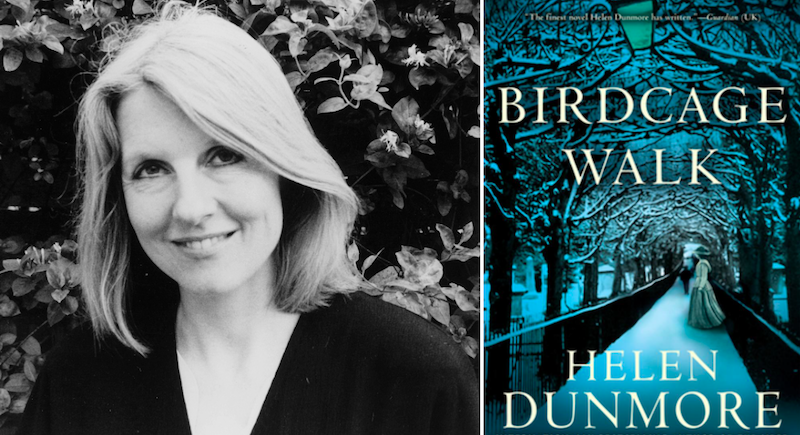

“Lizzie Fawkes is a naïve young woman, but she’s not a naïve narrator. There’s no device or subtext to her story. Birdcage Walk is not a novel in the form of a diary, a memoir, a letter or an internal monologue; Lizzie’s voice comes out of the air. Occasionally, and for no apparent reason, she slips into the present tense. In this and other ways, Birdcage Walk defies and includes a number of genres; it steadfastly refuses to be one thing. And why should it? Why narrow the scope of what a novel can do? The plot meanders, surprises. The characters are thoughtful, complex and irritating; sometimes they just talk about ideas. Helen Dunmore died in June of cancer. Increasingly ill as she worked on this book, she observes in its afterword that ‘under such a growing shadow,’ the novel ‘cannot help being full of a sharper light, rather as a landscape becomes brilliantly distinct in the last sunlight before a storm.’ That sharp light illuminates the canvas of Birdcage Walk and gives it a charged radiance. It has a tenuous, momentary feel, as if one were reading a Turner painting. The storm will blot it out.”
–Valerie Martin, The New York Times Book Review, November 6, 2017

